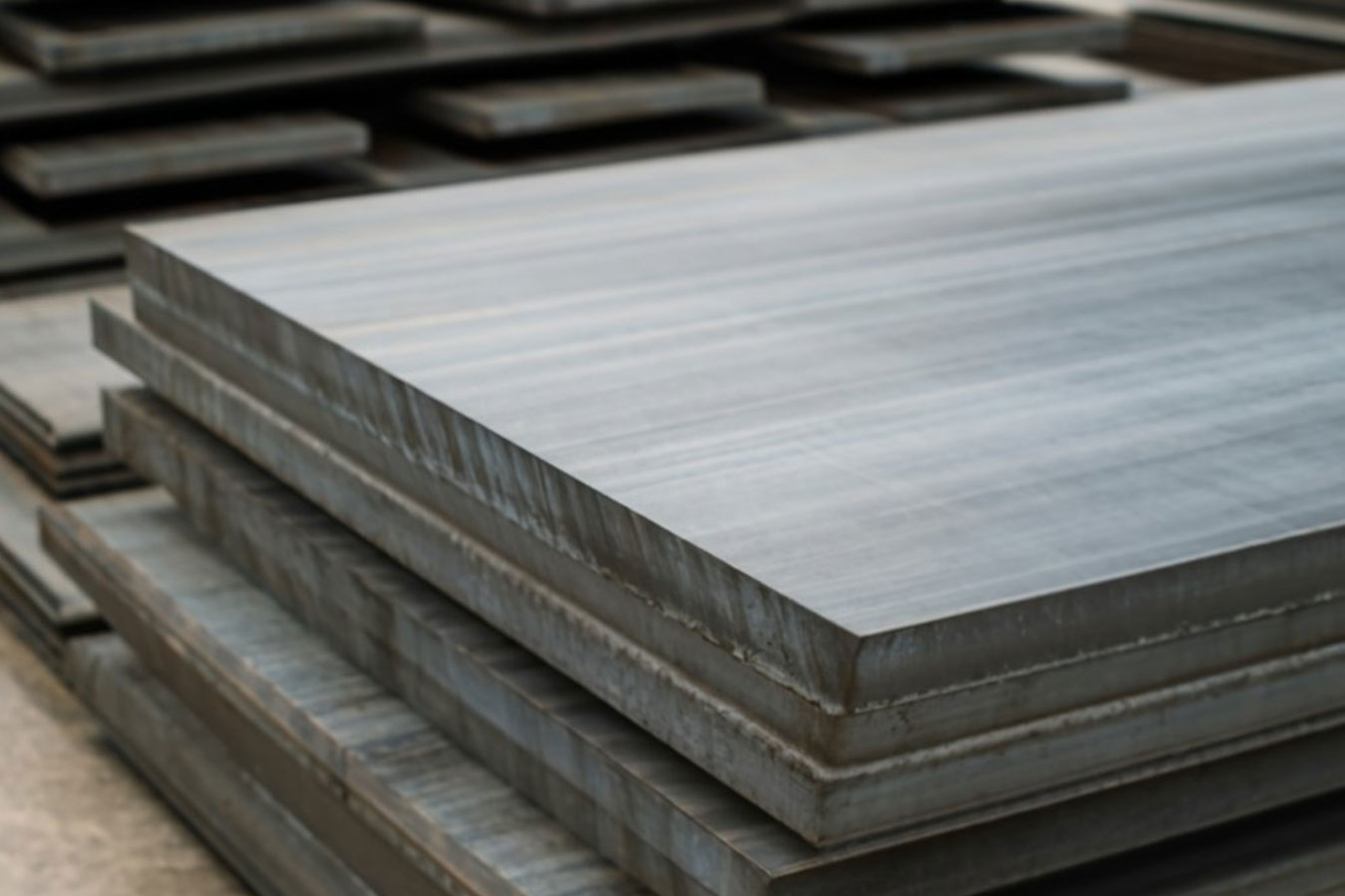Sheets & Plates
Sheets & Plates
MS (Mild Steel) sheets and plates are essential in various industries due to their versatility, affordability, and ease of fabrication. Here’s a detailed overview.
Order On
Order Now
Product Details
1. Composition of MS Sheets and Plates
Base Material: Mild steel with low carbon content (0.16% – 0.29% carbon).
Additional Elements: Trace amounts of manganese, silicon, sulfur, and phosphorus.
Surface Finishes: Can be plain (hot-rolled), galvanized, or coated for enhanced properties.
2. Characteristics
Strength and Durability: Suitable for heavy-duty applications.
Ductility: Easy to form, bend, and weld.
Machinability: Ideal for cutting, drilling, and shaping.
Corrosion Resistance: Enhanced with coatings or galvanization.
Economical: Cost-effective for a wide range of applications.
3. Types of MS Sheets and Plates
Based on Manufacturing Process
Hot Rolled (HR) Sheets/Plates:
- Manufactured by rolling steel at high temperatures.
- Slightly rough surface, suitable for structural and industrial applications.
Cold Rolled (CR) Sheets:
- Processed at room temperature for a smooth, polished finish.
- Used in applications requiring high precision and aesthetics.
Galvanized Sheets/Plates:
- Coated with a layer of zinc for superior corrosion resistance.
- Common in roofing and outdoor structures.
Based on Thickness
MS Sheets: Typically less than 6mm in thickness.
MS Plates: 6mm and above in thickness.
Based on Surface Treatment
Plain Sheets: No additional coating; ideal for indoor use.
Chequered Plates: Raised patterns for anti-skid applications.
4. Common Sizes and Specifications
Thickness: Ranges from 0.5mm to 50mm or more.
Dimensions: Standard sizes are 1250mm x 2500mm, 1500mm x 3000mm, or customized.
Standards: IS 2062, ASTM A36, EN 10025, etc.
5. Applications
Construction and Infrastructure
- Roofing and cladding.
- Bridges and walkways.
- Scaffolding platforms.
Automotive and Transportation
- Vehicle body panels.
- Shipbuilding and railways.
Industrial Uses
- Storage tanks and pressure vessels.
- Equipment fabrication.
- Conveyor systems.
Agriculture
- Equipment manufacturing (plows, tillers, etc.).
- Silo and storage bin construction.
Decorative and Consumer Goods
- Furniture.
- Electrical enclosures.
6. Maintenance and Care
- Regular cleaning and inspection for rust.
- Application of anti-corrosive paints or coatings.
- Proper storage to prevent moisture exposure and warping.
7. Advantages of MS Sheets and Plates
Cost-Effective: Cheaper than alternatives like stainless steel or aluminum.
Versatile: Suited for multiple industries and applications.
Customizable: Available in various sizes, thicknesses, and finishes.
Sustainable: 100% recyclable.
8. Key Considerations for Selection
Application Requirements: Consider load-bearing, environmental exposure, and finish.
Thickness and Size: Match with structural and design needs.
Corrosion Resistance: Opt for galvanized or coated materials if needed.

